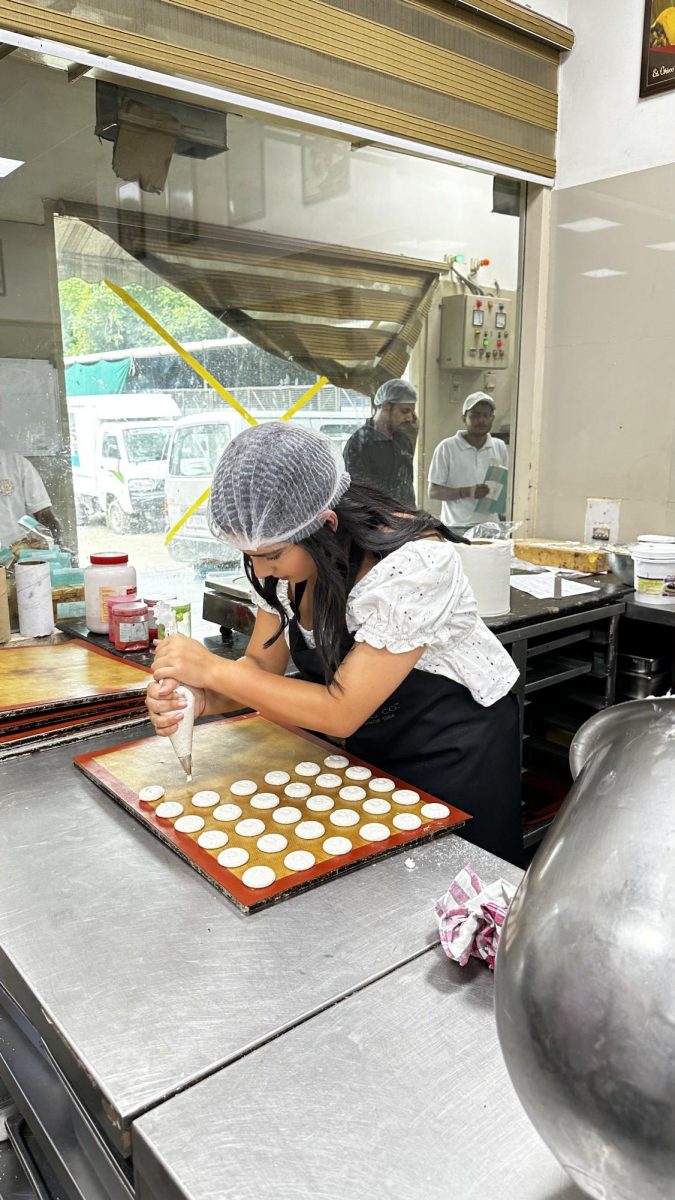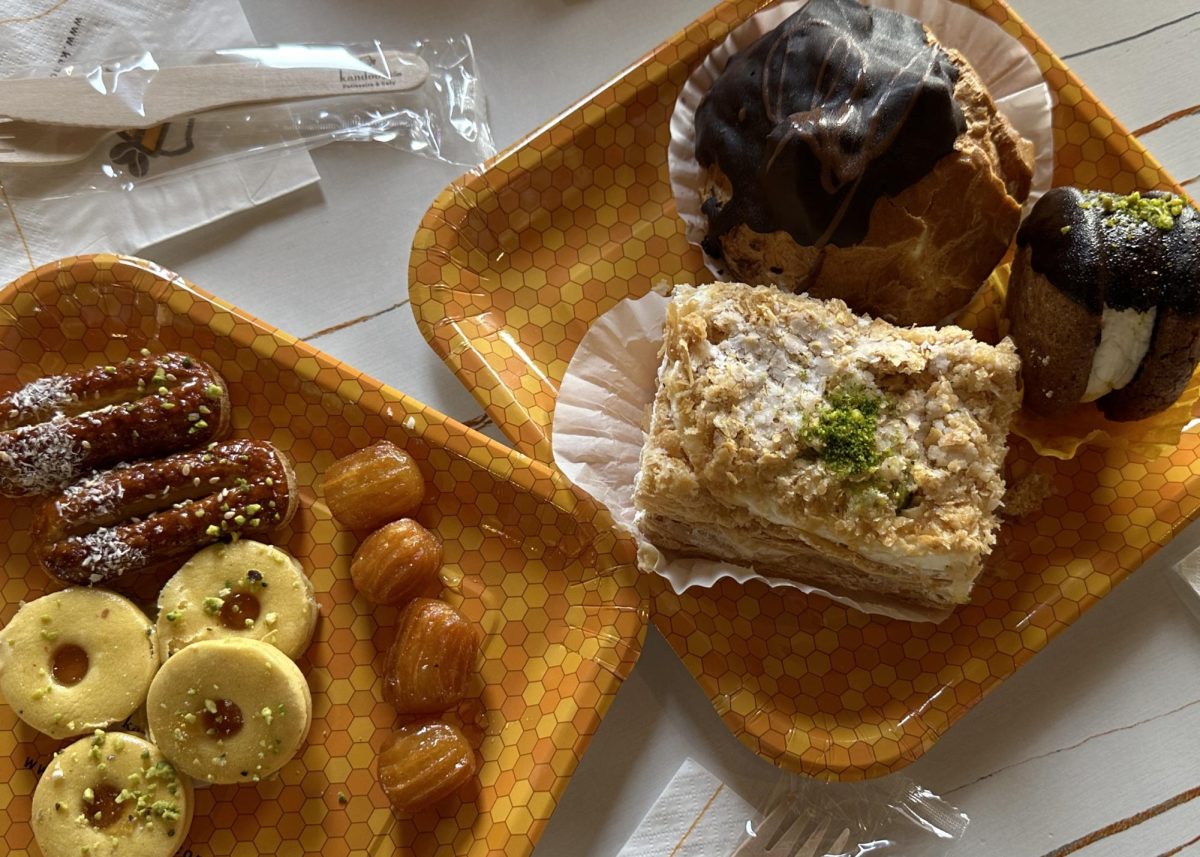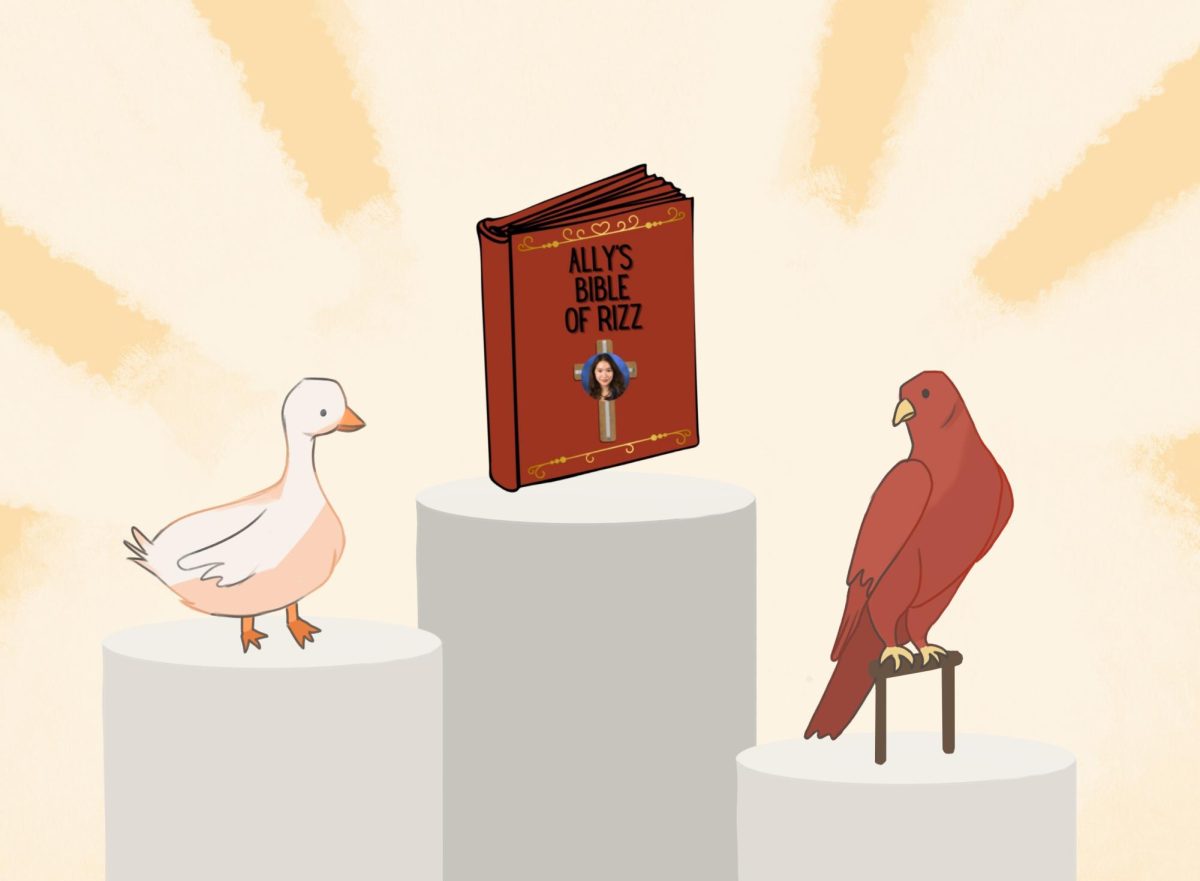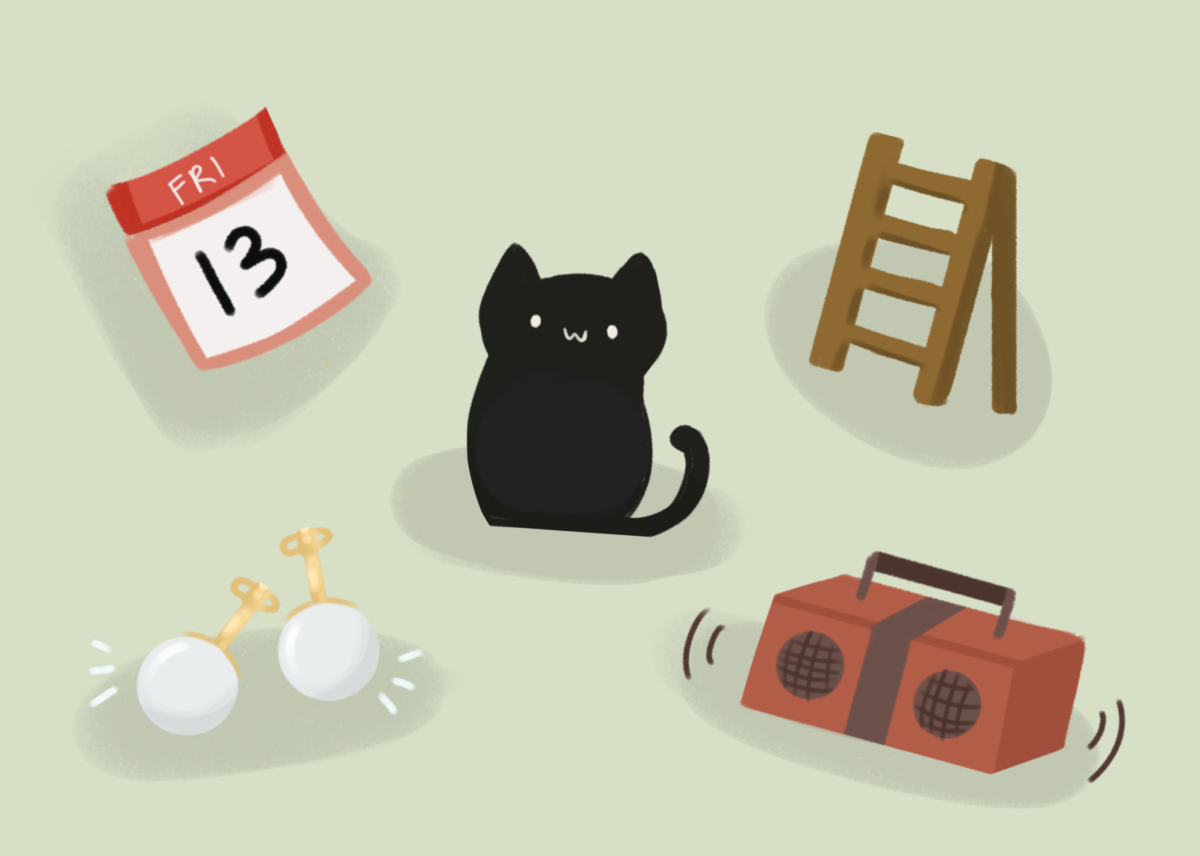Friday the 13th, seeing a black cat and walking under ladders — these are among the most prevalent superstitions across cultures.
Although typically associated with irrational or supernatural beliefs, superstitions have a logic of their own, especially for the believers in them.
Sophomore soccer player Katie Lu admits to having superstitions when it comes to her sport. She has followed a specific pregame routine when she began playing around age 5.
Lu puts on her left sock followed by her right sock, then her left shoe followed by her right shoe. She also always Dutch braids her hair.
To get in the mental zone, she listens to music while warming up with her team. Lu enjoys R&B and rap, some of her favorite artists include Sabrina Carpenter and Kendrick Lamar.
“Music helps our team get in the zone, and by sticking to this ritual before every game, our team has seen a lot more success,” Lu said.
Playing a team sport has allowed Lu to practice her superstitions with her teammates while also continuing some of her own.
“I think my superstitions are just for fun, but whenever I don’t braid my hair or my team doesn’t warm-up together, we lose,” Lu said.
Senior Kinnera Potluri, vice president of the speech and debate team and high-level competitor in the activity, also believes in some fun pre-tournament superstitions. She participates in Humorous Interpretation, an event that involves staying confident and calm under the spotlight of judges’ critical evaluation. Starting in freshman year, Potluri’s superstitions center around not jinxing herself.
“For example, if I say I’m going to advance to eliminations, then I’m not [going to make it]. If I joke around with Timothy or anyone else on the team [about not advancing], then I’m also not going to advance,” Potluri said.
Potluri sometimes finds it comforting to credit both her good and bad results to her silly superstitions.
“Everytime I get a disappointing result, I think to myself that it’s because I didn’t do this or that, which makes me not take accountability for a mistake I may have made,” Potluri said.
In the US, we are pretty familiar with some common superstitions we constantly obsess over such as Friday the 13th, black cats, crossing our fingers and knocking on wood. One of our most popular superstitions is the fear of the number 13, known as triskaidekaphobia. Unlike many, pop star Taylor Swift doesn’t fear this number, and in this regard, she is similar to certain other cultures in the world.
In an interesting study, Citizens of France and Italy were found not to have an aversion for the number 13; instead, these countries find this number lucky, bringing them prosperity and life.
Yet our country’s fear of the number 13 dates back to Loki, the god of pranks, who was the 13th guest at the Feast of Valhalla and was responsible for encouraging another guest into killing a god.
Regardless of if it’s your lucky earrings, favorite hairstyle or trying to not jinx yourself, many students have their own superstitions. Personally, I wear my pearl earrings for every speech tournament and use the same black color rubber band for every basketball game. Though they may just be for fun, my superstitions provide me with confidence to attain the results I desire.
Ultimately, whether you strictly follow your superstitions or aren’t a strong believer in them, many people find enjoyment and comfort in creating their own traditions with their favorite superstitions.





























